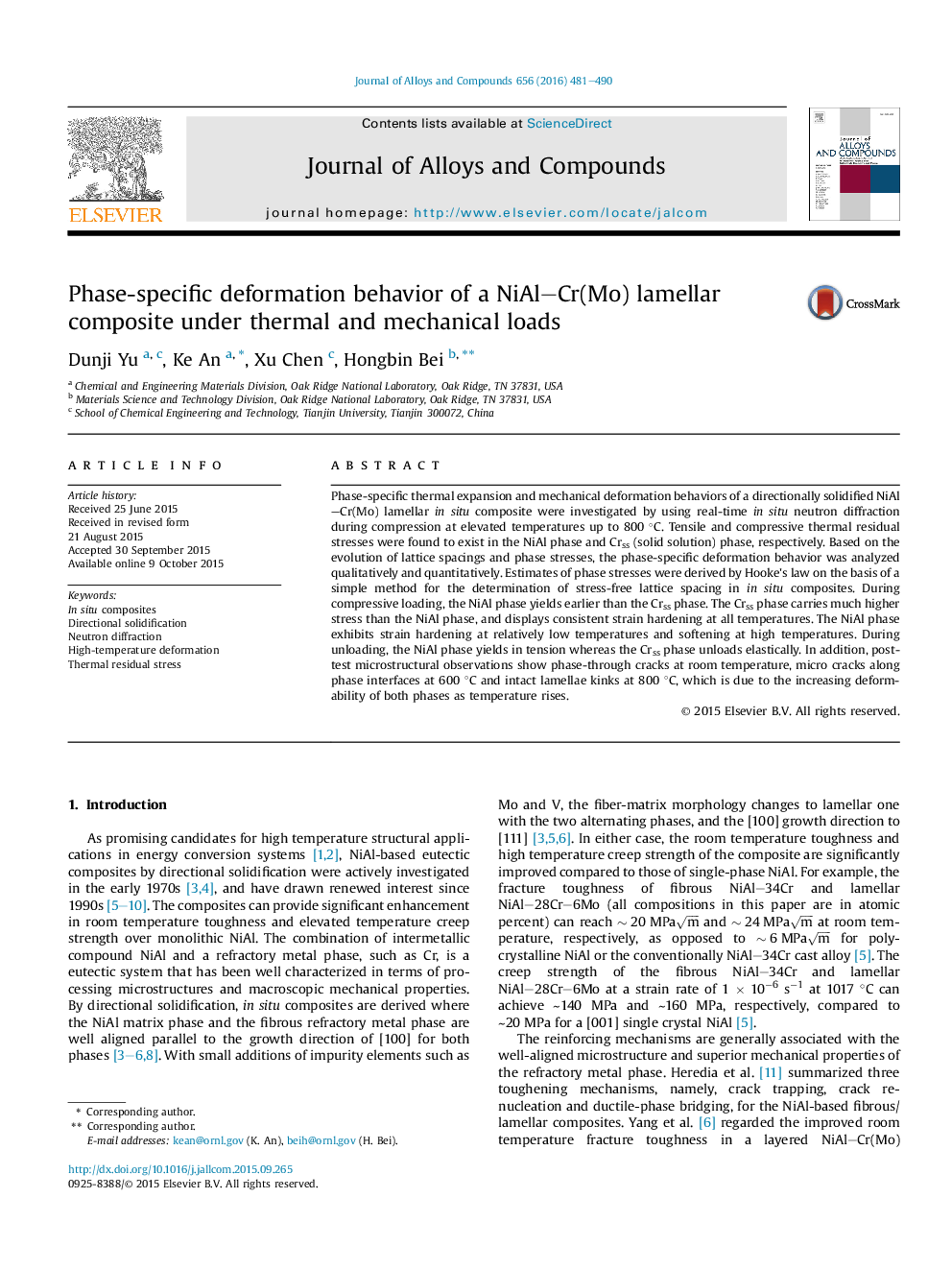| Article ID | Journal | Published Year | Pages | File Type |
|---|---|---|---|---|
| 1607694 | Journal of Alloys and Compounds | 2016 | 10 Pages |
Abstract
Phase-specific thermal expansion and mechanical deformation behaviors of a directionally solidified NiAl-Cr(Mo) lamellar in situ composite were investigated by using real-time in situ neutron diffraction during compression at elevated temperatures up to 800 °C. Tensile and compressive thermal residual stresses were found to exist in the NiAl phase and Crss (solid solution) phase, respectively. Based on the evolution of lattice spacings and phase stresses, the phase-specific deformation behavior was analyzed qualitatively and quantitatively. Estimates of phase stresses were derived by Hooke's law on the basis of a simple method for the determination of stress-free lattice spacing in in situ composites. During compressive loading, the NiAl phase yields earlier than the Crss phase. The Crss phase carries much higher stress than the NiAl phase, and displays consistent strain hardening at all temperatures. The NiAl phase exhibits strain hardening at relatively low temperatures and softening at high temperatures. During unloading, the NiAl phase yields in tension whereas the Crss phase unloads elastically. In addition, post-test microstructural observations show phase-through cracks at room temperature, micro cracks along phase interfaces at 600 °C and intact lamellae kinks at 800 °C, which is due to the increasing deformability of both phases as temperature rises.
Keywords
Related Topics
Physical Sciences and Engineering
Materials Science
Metals and Alloys
Authors
Dunji Yu, Ke An, Xu Chen, Hongbin Bei,
